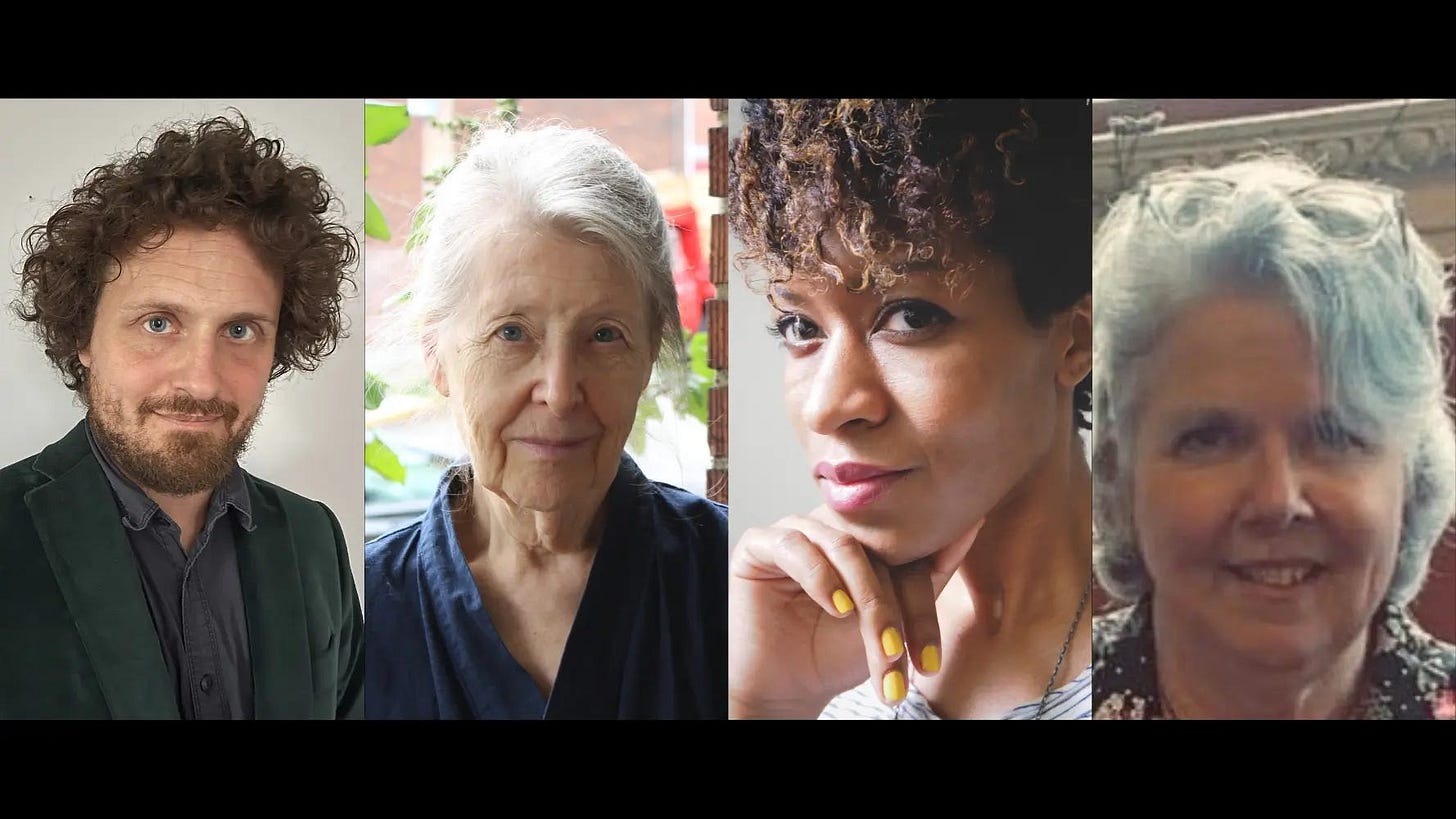A Poetics?
and a video
The house clung silent and cold to her skin yes to her skin the house was that close it was not her house it was their house the grownups’ house the house of the father the house of the mother Somewhere the dinner was cooking the mother was cooking the dinner the father was somewhere anticipated in the cold of the house in the heat of the kitchen in the cat’s meow in the claws of the cat in the yawn and the maw and the teeth of the cat in the cat’s rough kissing tongue
Once upon a time … about twenty-five years ago …
… when the feminist literary magazine 13th Moon accepted my short piece “Will Work As Food,” they requested a “statement of poetics” to appear with it. I was teaching at the time in the writing program of the University of Pittsburgh—a joyous teaching experience for nearly a decade before I left academia for zen training—and the practice of zen already shows in the words I sent in response, offered here in their original form.
For a statement that resists itself—resists being declarative, definitive, that resists even being made, I find it still in accord with how I would think about this question today, if I did have to think about it, although today’s response, I like to imagine, would come in a gentler, more nuanced, and even more reluctant tone.
“Poetics,” as it appeared with “Will Work As Food,” in 13th Moon, XV/XVI, 2000
A statement of poetics. I resist the doing of this.
The word “poetics” seems to me to carry a prescriptive sense, even if I apply it only to my own practice: not simply an offering, a description, a narrative, of my ongoing process (or more accurately processes, because they shift and change, they move), but a declaration of rules, principles applicable across time and space and circumstance: my poetics, as if there still is somehow only one (if not Aristotle’s, then at least consistently my own).
My American Heritage Dictionary of the English Language gives as its first definition: “Literary criticism that deals with the nature, forms, and laws of poetry.” Although the second and third definitions are somewhen less legalistic, all three name poetry as the form with which poetics deals.
Which gives me something to bite into: the assumption in such definitions that poetics has nothing to do with writing fiction, and thus the opportunity to call Aristotle to witness, for whom poetics included (rules of) narrative and (perhaps because he preferred Sophocles over Euripides) argument favoring narrator silence.
I once preferred narrator silence myself, that deeply subjective attached third-person modernist practice in which the narrator is effaced before action and character, a preference I learned in graduate school probably, and times are when I still prefer it. But not always.
I have worked asking a single sentence, perhaps a first sentence, the sound of a sentence, the implications of a sentence, to lead me on to the next, a kind of incantatory leading. But not always.
I have worked letting an image carry me on to the next, or letting a final image show me the way back to a beginning, to writing the path that arrives at the necessary end, the route out of that labyrinth. But not always.
I have worked intellectually, but not always.
I have worked with a schematic, mathematically mapped grid into which I wove my narrative, my characters, my fictional obsessions, my plays with language, idea, and desire. Certainly not always.
I have worked writing one short section of only a few lines at a time because one short section was as much as I could manage of the weight and density of material I was shaping into an architecture of hard, bright fragments. No, not always.
Lately, I have been interested in fiction that butts up against nonfiction, working with fact and reflection, working with fact as invention, with memory as invention, with invention as re-invention, with fiction as speculation and speculation as revision that reenvisions mythic presents and pasts, both personal and collective.
Are rules to be made of these practices? It is hard—no, inherently contradictory—to lay out rules of a practice that changes with each new writing, with each new making.
I sit, I open my mind, I face the task at hand.


And fast forward to the present — a reading and recording
On March 18, I enjoyed offering some of my “little misfits” as part of the Free Association reading at Pittsburgh’s City of Asylum with Camille Rankine, Donna Wojnar Dzurilla, and Malcolm Cullerton. The recording of that event is now available on Vimeo from the City of Asylum Program Archive.
Other Little Misfits can be read here on Substack.
— and maybe consider a book?
Books
“Ms. Gammon, who publishes her fiction with very small presses, deserves to be more widely read ... ”
— Sam Sacks, The Wall Street Journal, February 7, 2024





